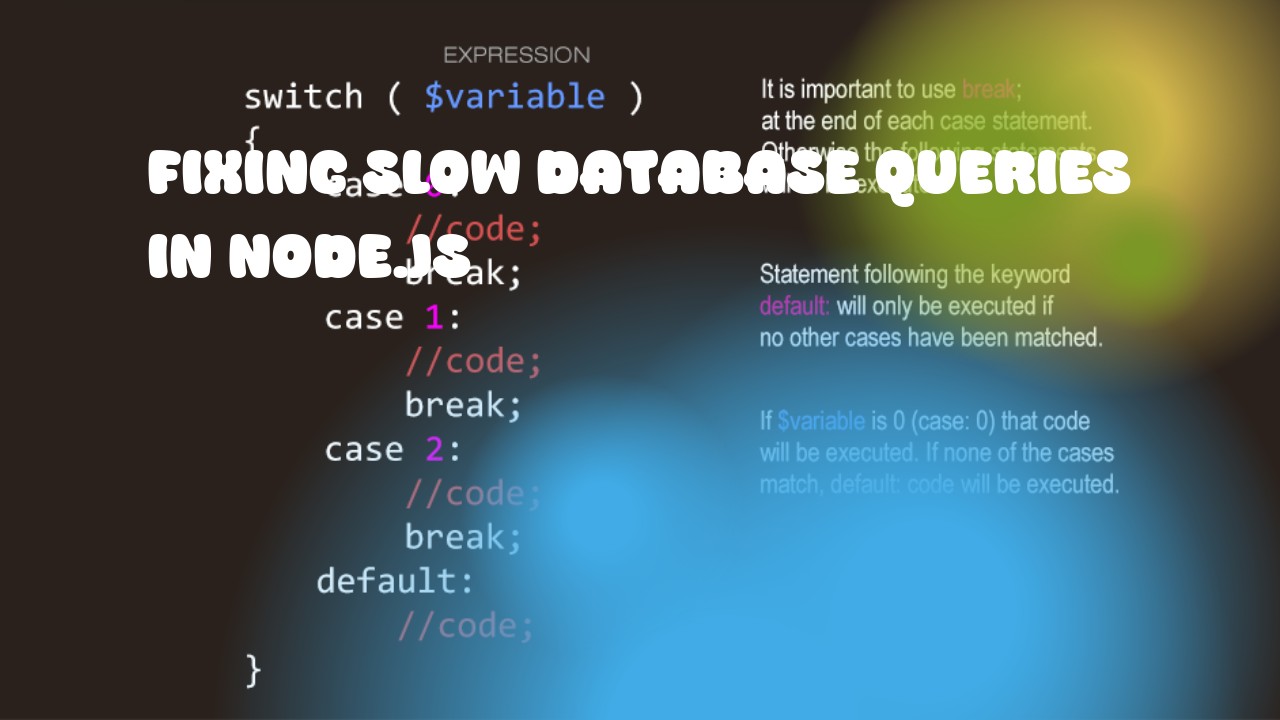Fixing slow database queries in Node.js can be achieved by using proper indexing, query optimization techniques, and other strategies. Here are some tips on how to improve performance:
- Use the right database: There are many NoSQL databases like MongoDB or Cassandra that offer faster querying speeds compared to traditional relational databases like MySQL or PostgreSQL. Using a NoSQL database can reduce network latency and improve query performance.
- Limit the fields returned from your queries: When performing complex queries, specify only the necessary fields in the result set instead of using SELECT *. This will reduce the amount of data transferred over the network and speed up the query execution.
- Use indexes wisely: Indexes can significantly improve the performance of database queries by allowing them to quickly locate specific rows based on certain criteria. However, it is important not to create too many indexes as this could slow down your application. Consider creating indexes only on columns that will be frequently used in WHERE conditions or JOIN operations.
- Use connection pooling: Node.js applications often have a high number of short-lived connections to the database. To avoid creating new connections with each request, use a connection pool. This will reuse existing connections and reduce the overhead of establishing new connections.
- Minimize your database calls: Each database call can add overhead and slow down your application. Whenever possible, combine multiple database queries into a single query by using JOIN operations or subqueries. Avoid executing multiple SELECT * statements on the same table.
Here's an example of how to create an index in MongoDB:
const mongoose = require('mongoose');
// Connect to your MongoDB database
mongoose.connect('mongodb://localhost/mydatabase', { useNewUrlParser: true, useUnifiedTopology: true });
// Define your schema
const userSchema = new mongoose.Schema({
name: String,
email: String,
});
// Create an index on the name field
userSchema.index({ name: 1 });
// Create the model
const User = mongoose.model('User', userSchema);
In this example, we're creating an index on the name field of the User collection. This will allow us to quickly search for users by their names.

